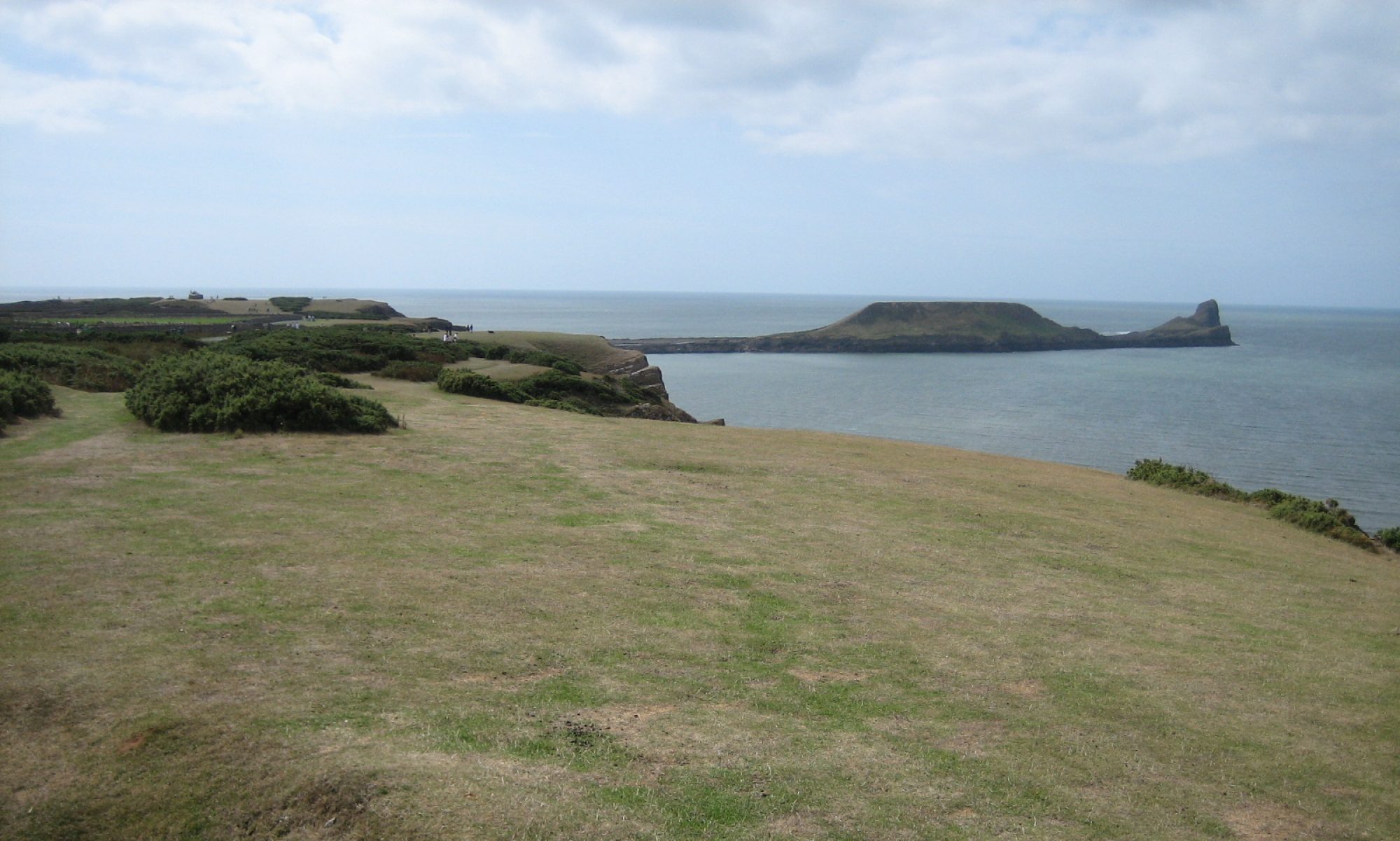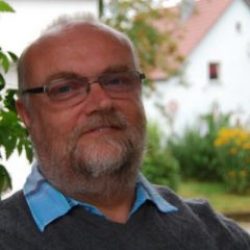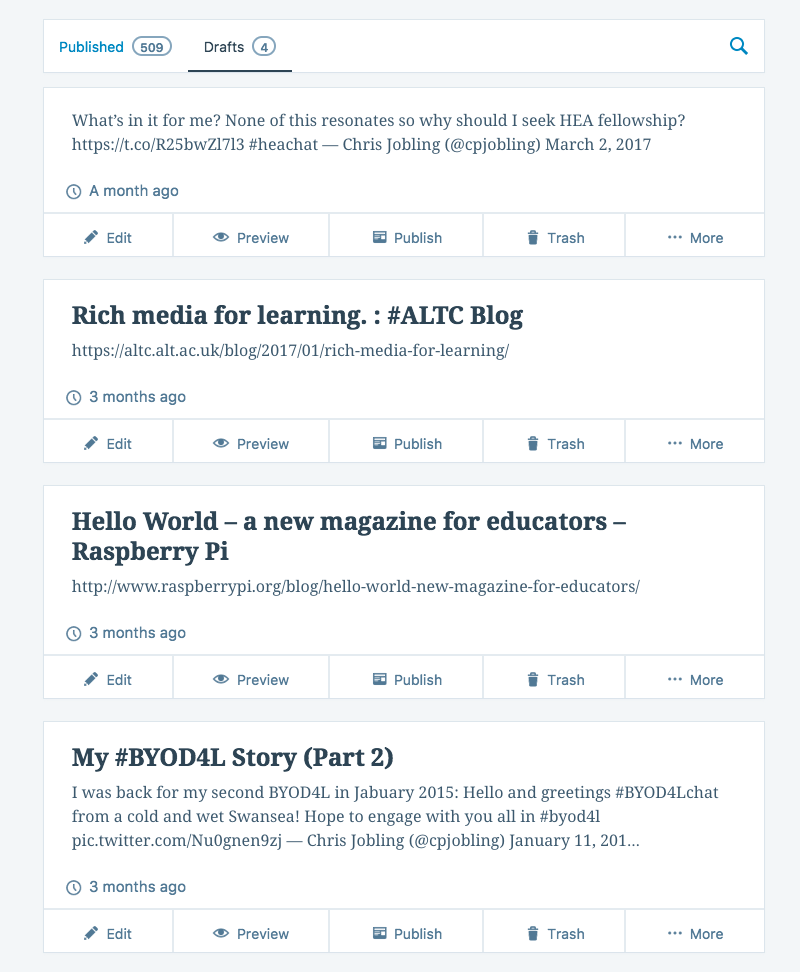
As an engineer with a keen interest in software development and the web I suppose I come to “Open” with a philosophy formed from my exposure to the Open Source Software movement. I remember reading Raymond’s The Cathedral to the Bazaar, and being fascinated by Richard Stallman, the Gnu Project, and his idea of Copyleft introduced by the Gnu General Public Licence (GPL). When it came to YouTube and Flickr, making my works available via a CC-BY licence seemed the right thing to do. On the web, I’ve used Wikipedia extensively (as you can see from this post) and would agree with others that it’s one of the greatest Open Educational Resources that exist. I have a source code repository on GitHub where the sharp eyed may find the odd teaching resource made available to the public without necessarily having the right permissions.
As a practitioner, I suppose my Open Educational Practice began when I launched this Blog back in 2004. Fresh and Crispy (the name is a pun on my initials) was originally hosted on Blogspot. It has moved a couple of times to a various hosted WordPress and Ghost blogs on shared servers and virtual private servers before ending up hosted on WordPress, albeit with my domain name attached. Most of my early posts were around programming technologies like Java and Web applications. I joined Twitter in April 2007:
https://twitter.com/cpjobling/status/24929041
and a lot of my early tweets are about the Swansea Learning Lab, an early community of practice here at Swansea University. Here’s a typical (rather depressing) tweet:
https://twitter.com/cpjobling/status/1400200315
I suppose a breakthrough for me came as a ed blogger came when I joined the Connectivist MOOC Plenk 2010 in September of that year.
I remember being dragged in and becoming somewhat obsessive about curating the discussion boards in that MOOC — the evidence of which seems to have sadly disappeared — but I was honoured by being called a Meerkat by one of the participants:
https://twitter.com/cpjobling/status/27352015957
I started tweet chats quite early, #lrnchat (still going strong) was one of the first as the tweet above testifies.
Since then I’ve attended virtual ALT conferences, JISC and HEA events, been a participant and mentor on #BYOD4L, and an organizer on #LTHChat. and one or two further MOOCs.
I find it difficult to reflect on what benefits there have been for me, but there must have been lots. It’s even more difficult to judge what impact I’ve had. But I must have gotten something out of it along with sufficient positive feedback from my virtual friends and real colleagues otherwise I wouldn’t continue to be engaged.



